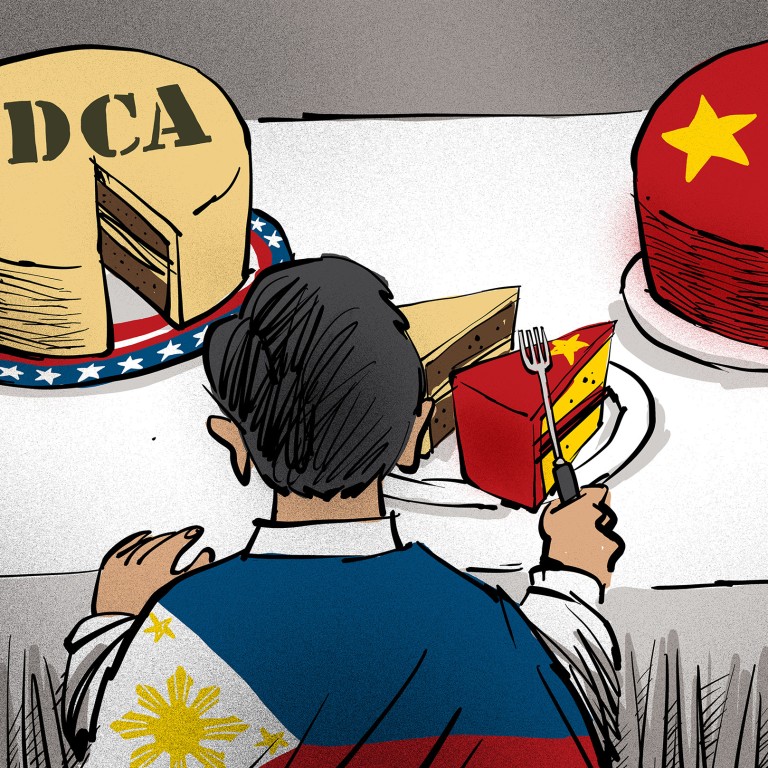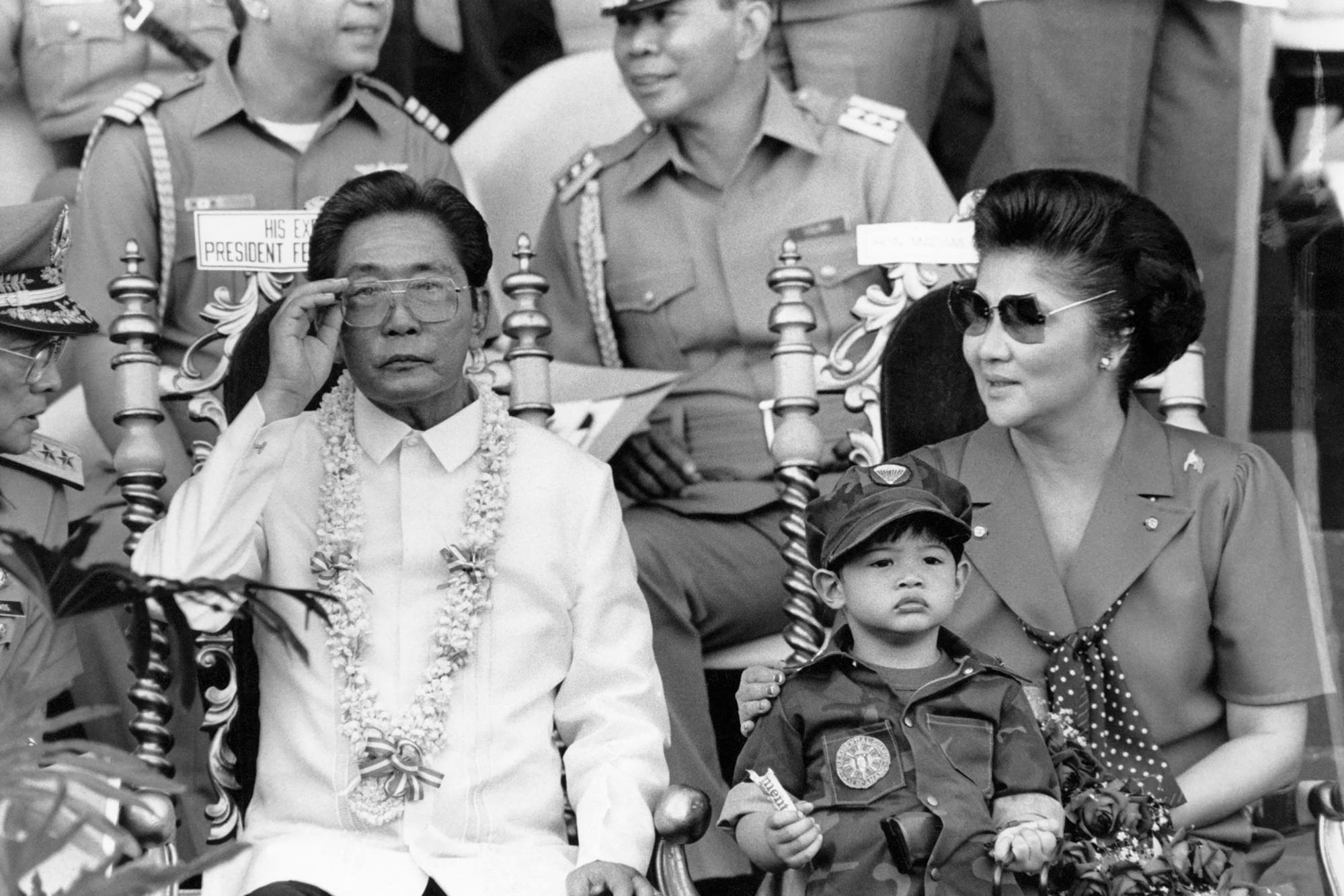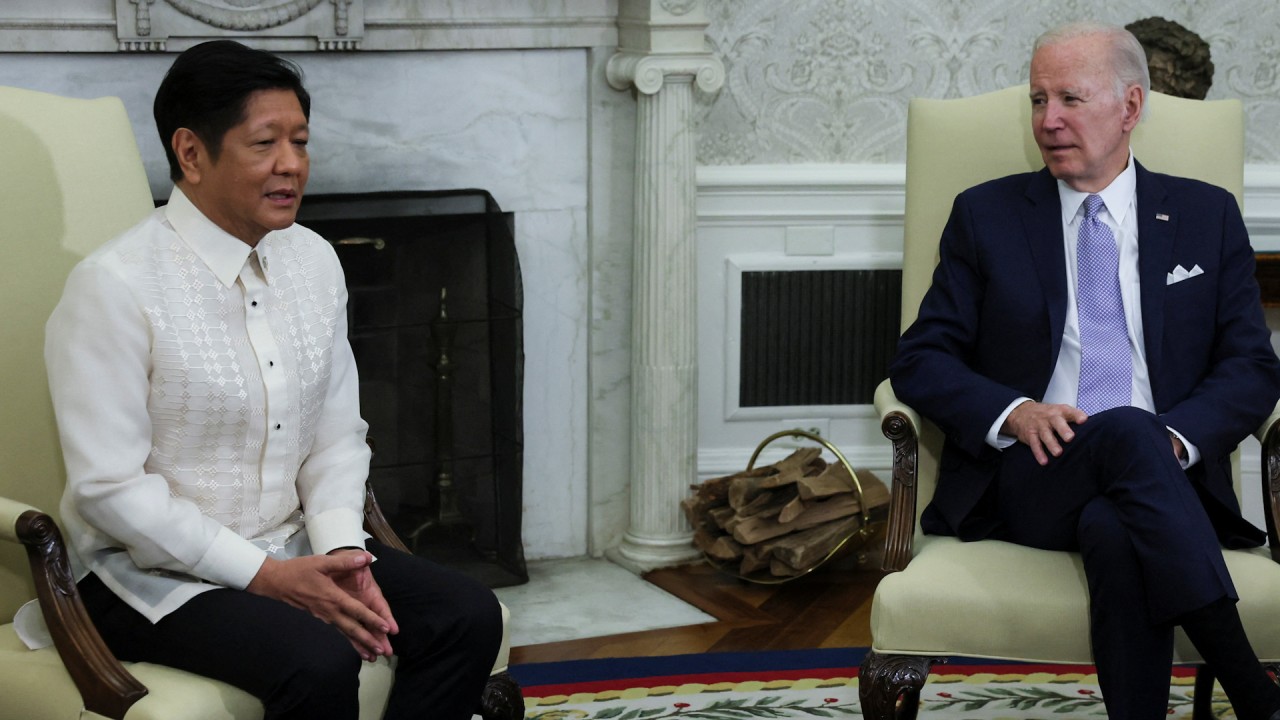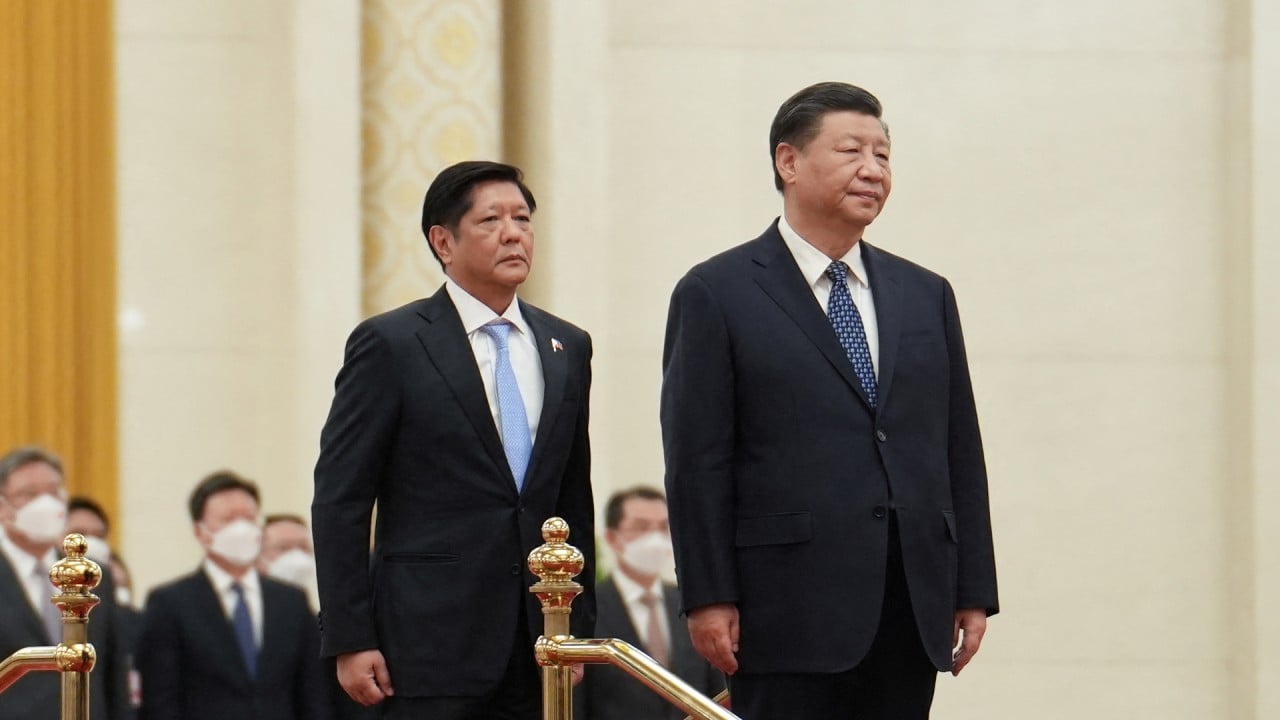
On the US and China, Marcos wants the Philippines to have its cake and eat it too
- The Philippine president is trying to achieve a ‘Goldilocks’ level – neither too hot, nor too cold – of military cooperation with the US without unduly provoking Beijing
- Fully alienating China, a top trading partner, is not an option, not least because of domestic opposition
“Our countries not only share a strong partnership, we share a deep friendship – one that has been enriched by millions of Filipino Americans in the communities all across the United States of America,” Biden added, underscoring the depth of the alliance.
Throughout his trip, Marcos emphasised the centrality of trade and investment to his foreign policy agenda. He seems determined not to fully align with the US in a new cold war against China, but instead explore a “Goldilocks” level of military cooperation which protects Philippine security interests without unduly provoking the Asian superpower.

On the sidelines of the UN General Assembly last year, Biden made his intentions crystal clear in a meeting with Marcos. “We can do a lot together. I’m desperately interested in making sure we do,” he said, underscoring Washington’s determination to enlist Manila’s support in its intensifying rivalry with Beijing.
While relishing Biden’s strategic embrace, Marcos has demurred from a full alignment with Washington. In welcoming expanded military cooperation under the EDCA, the Philippine president seems intent on enhancing Philippine defence capabilities without needlessly provoking China, a top trading partner.
Crucially, however, the two sides have yet to agree on the exact number of troops and the nature of weapons systems to be stationed in Philippine facilities under the EDCA. Nor do there appear to be concrete agreements on how EDCA facilities can be used by US troops in regional contingencies.
Will new Philippine sites for US military near Taiwan affect Manila-China ties?
For Marcos, the US should instead help to modernise the Philippines’ deterrence capabilities without dragging it into a conflict with China. This brings us to the second key factor, namely Marcos’ abiding belief that fully alienating Beijing is not an option. China’s support represents a major economic prize for the Philippines, which is in desperate need of massive infrastructure investment.
Cautious in temperament and shrewd in geopolitics, Marcos, like his late father, is trying to have his cake and eat it, with expanded US security cooperation and fruitful Chinese economic ties. Whether he can pull off a Goldilocks level of strategic cooperation with the US without provoking China remains to be seen. It will be an extremely delicate balancing act.
Richard Heydarian is a Manila-based academic and author of “Asia’s New Battlefield: US, China and the Struggle for Western Pacific”, and the forthcoming “Duterte’s Rise”



